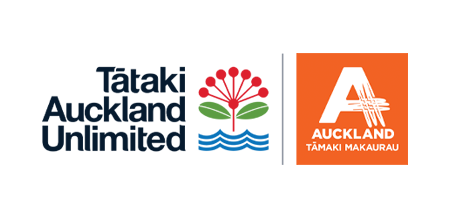New Lynn / Whau
Event Overview
Where did people come from
Who came to the event
Event promotion
How did people hear about us?
Attendance
This Rebel event had a variety of different workshops over the days we were there. But how long on average did participants stay for?
Average show-up
People stayed for
Employment status
32% of the people who came along to the event told us they were unemployed at the time the event started.
There was a high number (20%) of self-employed people who came to the event.
Start-ups & Sales
One of the key points on an entrepreneurs journey is the first sale. The first time you hold that $10 profit in your hand. This can turn out to be the catalyst that drives you forward to build your business.
We do everything we can to help people reach their first sale with 33% achieving this during the course!
Business structure
Types of businesses created
Impact on capabilities
At the Rebel Business School we track four main figures for people before and after the event. We ask people to rate where they are on a scale of 1-10.
COVID-19 impact
Websites
Here are samples of the websites that were built, launched and developed over the course.
It is amazing how having a website so quickly helps people to feel that their business is more real.
Business support
Connecting attendees to the local business ecosystem
At the Rebel Business School Aotearoa we make sure new businesses stay connected by providing awareness of business network support in specific areas as needed. These connections are all about enabling business sustainability. Being aware of the Bookkeepers Assn NZ or Business Mentors NZ, for example, can provide business input allowing the business to strengthen its foundations and/or its direction.
Daily Speakers
Economic development
Auckland Council
Auckland Council is comprised of Local Boards who manage the council operations: parks, business development, community and programmes. Local boards provide governance at the local level within Auckland Council. They enable democratic decision making by, and on behalf of communities within the local board area. There are 21 local boards with between five and nine members elected to each board (149 local board members in total). Whau is one of those Local Boards.

At an economic development level, Auckland Unlimited is the Economic Development Agency working on behalf of Auckland Council and promoting economic development opportunities collaborating with Local Boards across Tāmaki Makaurau.
Whau
Home to almost 80,000 people, Whau is the thriving urban hub of the city’s western fringe and the western end of the Auckland Isthmus where the Whau River – an estuarine tributary of the Waitematā – comes within two kilometres of the Manukau Harbour. The Whau River is steeped in meaning and historical significance for local Māori. Prior to European settlement, the people of Te Kawerau ā Maki established themselves throughout what is now the Whau area. The Whau River was particularly significant to this highly mobile people who moved between the Northern Manukau and Upper Waitematā Harbours.
Whau is one of the most ethnically diverse areas of Tāmaki Makaurau. Over 40 per cent of Whau's population identifies as Asian – significantly higher than the regional average of 28 per cent. The Local Board also have a higher Pasifika population than the regional average, and these communities – along with Korean, Filipino, Sri Lankan, Middle Eastern, African, and of course our Māori population – have voices that need to be heard more prominently so that Whau Local Board can embrace its increasing diversity and respond effectively to their needs.
Whau Economic Development
Whau Local Board Plan Outcome six: Thriving town centres a strong local economy and neighbourhoods that are supportive and connected.
More local people are able to access employment, education and training opportunities in the Whau.
- Continue to fund youth employment initiatives and look for opportunities to connect employers across west Auckland to organisations supporting youth employment
- Work with The Western Initiative and other key partners to grow local skills and employment
- Continue activities such as the Rebel Business School with Auckland Unlimited, and look for opportunities to work with neighbouring local boards and other organisations in this space
- Explore opportunities to increase local procurement for council contracts and advocate for a living wage across the Whau
- Support and encourage social enterprise initiatives in our local communities
- Support Māori and Pasifika businesses to pilot local workforce development initiatives Our businesses are more sustainable Identify and support opportunities to promote a circular or regenerative economy
- Work with businesses to minimise waste in the most cost-effective way
Source: Whau Local Board Plan 2022
Rebel Business School Aotearoa support in Whau
The 2020 Whau Local Board Plan has a strong local economy as part of one of its 6 outcomes, with continued support for the Rebel Business School alongside neighbouring local boards identified as a key initiative.
Attendees’ feedback
We asked the participants what their Lightbulb moments were at the event. Also they left the messages for our partners and assessed our team’s efforts.